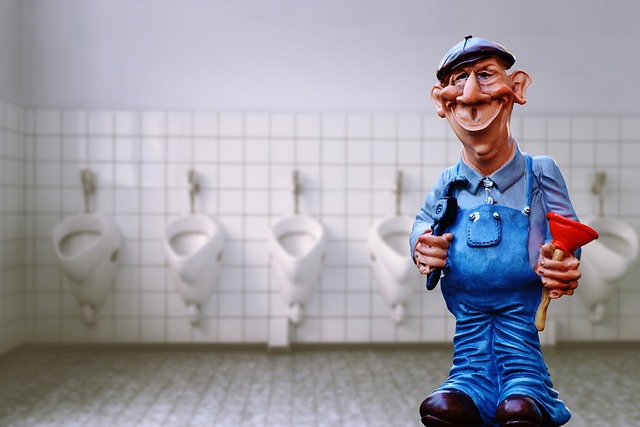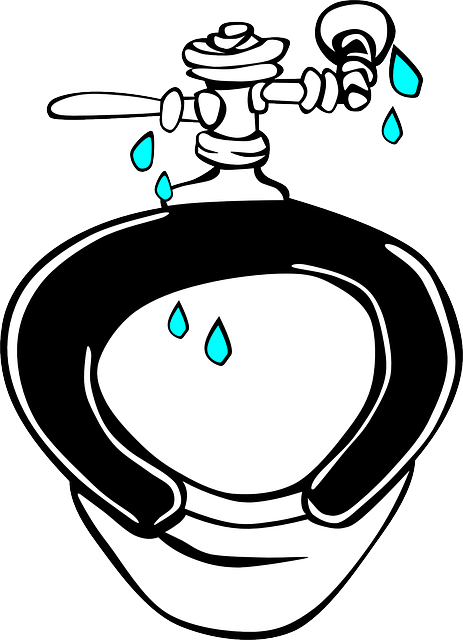TL;DR:
Deciding between DIY and professional plumbing depends on your skill level, time, and the repair's scope. Simple tasks like fixing leaky faucets or drain clogs can be done by enthusiasts with basic tools. However, complex issues such as repiping, water heater replacements, or severe clogs require professional expertise, specialized equipment, and permits, emphasizing the DIY vs. professional plumbing debate.
Plumbing repairs can be a daunting task for homeowners, leaving many wondering: should I roll up my sleeves or dial a pro? This article guides you through the decision-making process by exploring the pros and cons of DIY plumbing versus hiring a professional. We’ll discuss suitable projects for beginners, essential tools, and limitations of DIY methods. Additionally, we’ll delve into the benefits of professionals, signs requiring their expertise, and common complex issues like clogs and leaks.
- Assessing Your Plumbing Skills and Tools
- – What DIY plumbing projects are suitable for beginners?
- – Tools needed for basic repairs vs. complex issues
Assessing Your Plumbing Skills and Tools

Before tackling any plumbing repair, it’s essential to assess your skills and tools. If you’re a DIY enthusiast with some basic knowledge and tools, minor plumbing issues like leaky faucets or clogged drains might be within your comfort zone. A well-stocked toolbox with essentials like pliers, wrenches, and adhesive tape can go a long way in solving these problems efficiently.
However, when it comes to more complex tasks such as repiping, water heater replacements, or sewer line repairs, it’s often best to leave DIY attempts to the professionals. These jobs require specialized knowledge, tools, and permits that are beyond the typical homeowner’s reach. Professional plumbers have the expertise and experience to navigate labyrinthine plumbing systems safely and effectively, ensuring no damage is done during the repair process. Choosing between DIY vs. professional plumbing depends on your skill level, time availability, and the scope of the issue at hand.
– What DIY plumbing projects are suitable for beginners?

For many home enthusiasts, tackling minor plumbing issues can be an appealing way to save costs and roll up their sleeves for a satisfying DIY project. Simple tasks like fixing a leaky faucet or unclogging a drain often top the list of suitable DIY plumbing projects for beginners. These jobs typically involve straightforward repairs that don’t require specialized tools or knowledge beyond basic problem-solving skills.
When considering DIY vs. professional plumbing, it’s essential to recognize the limitations. While minor fixes are within reach for most do-it-yourselfers, more complex issues such as replacing pipes, dealing with water heater troubles, or fixing severe clogs might be better left to professionals. These tasks often demand specific tools and a deep understanding of plumbing systems, ensuring safe and effective repairs.
– Tools needed for basic repairs vs. complex issues

When tackling plumbing repairs, understanding whether a job is suitable for a DIY approach or requires professional expertise is key. For simple, straightforward issues like fixing a leaky faucet or unclogging a drain, homeowners can often roll up their sleeves and complete these tasks with minimal tools. A basic set of pliers, wrenches, and a plunger are usually all that’s needed to resolve such minor problems efficiently.
However, as plumbing issues become more complex—such as dealing with broken pipes, severe clogs, or faulty water heaters—the DIY approach may not be the best option. These scenarios often demand specialized tools and knowledge, like pipe cutters, soldering irons, and advanced troubleshooting skills. It’s in these cases that enlisting a professional plumber becomes the safer and more effective choice, ensuring the job is done right and avoiding potential further damage or safety hazards.
When deciding between DIY plumbing repairs or calling a professional, assessing your skills and tools is key. For minor issues like leaky faucets or simple clogs, DIY methods can be effective and cost-saving. However, complex problems like pipe replacements or severe clogging may require the expertise of a licensed plumber. Investing in basic plumbing tools can empower you to handle small repairs, but for significant work, enlisting a pro ensures job efficiency and longevity, preventing further damage and costly mistakes. Ultimately, understanding your capabilities and when to seek professional help is the best approach for effective DIY vs. professional plumbing decisions.
